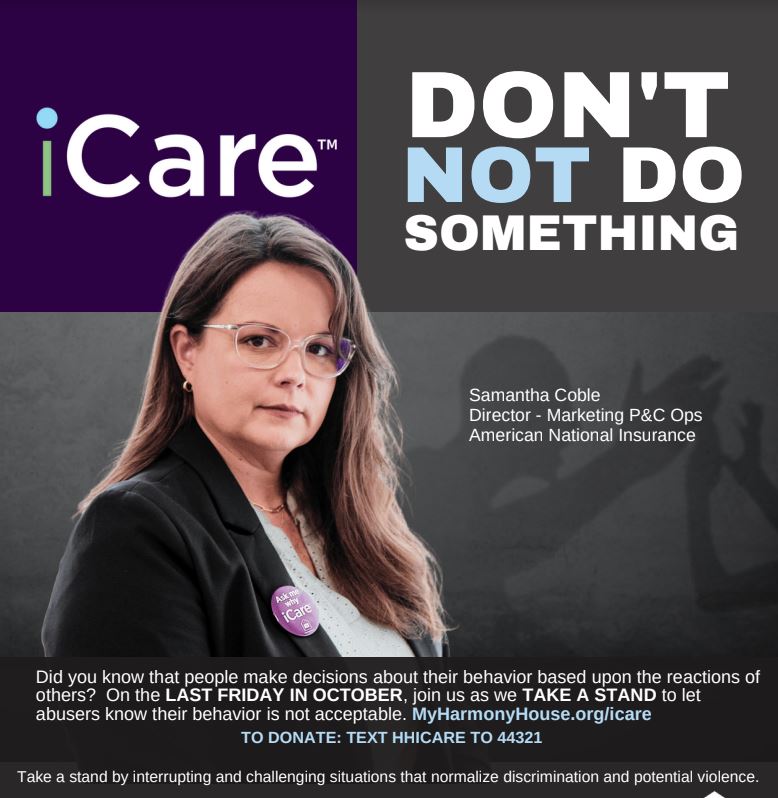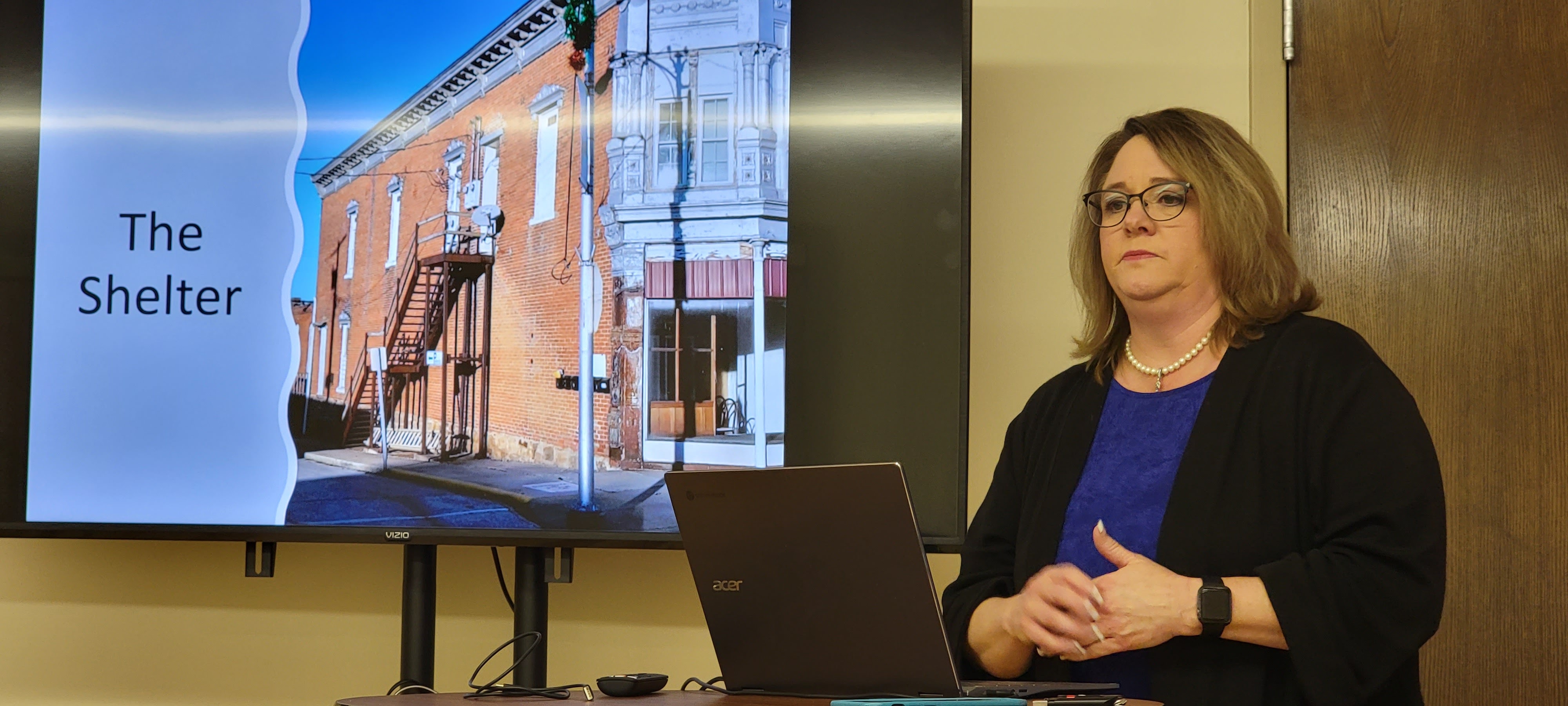Springfield police believe a recent and increase in reports of domestic assaults is the result of Springfieldians building an increased awareness about domestic violence — and how to get help.
“(W)e hope that has prompted individuals to come forward to report,” police spokesperson Cris Swaters wrote in an email.
During the week of Sept. 4-10, there were “significantly more domestic assault reports city wide,” Swaters said.

The spike comes a few months after the Hauxeda published Living in Fear, a four-part series on domestic violence in Greene County, and just days before Harmony House kicks off its ninth annual iCare, a month-long public awareness and fundraising campaign.
Harmony House is Greene County’s only shelter for victims of domestic violence and their children. In addition to shelter services, Harmony House offers free victim advocacy, counseling and case management. The organization can help with safety planning and support for victims who are thinking about leaving abusive relationships.
Harmony House will host the iCare Kick Off Breakfast at 7:30 a.m. Wednesday at the Oasis Convention Center. Attendees can learn how they and/or their businesses can support survivors of domestic abuse and intimate partner violence.
If you are signed up for iCare already, the breakfast is a great time to pick up your purple box (filled with iCare stickers and other promotional materials). If you haven’t signed up yet, you will be able to register at the breakfast.
What is iCare?
Throughout October — National Domestic Violence Awareness month — Springfield businesses and organizations participating in the iCare campaign will encourage employees to talk about the issue of domestic violence and provide educational material to staff and customers about warning signs and how to get help.
Businesses display posters and fliers (provided by Harmony House) throughout their facilities and hold fundraisers for Harmony House.
Then on iCare Day,the last Friday in October, employees are encouraged to take the “iCare” pledge by wearing a symbolic black eye sticker. Customers and individuals in the community are also encouraged to participate on iCare day by wearing the black eye sticker.
People also wear “Ask why I care” shirt lapels to start conversations about why they support Harmony House. They often share selfie photos on social media platforms on iCare day.
Need help?
Find resources for victims and information about how to support someone who is being abused here.
For emergency situations, call 911.
The Victim Center and Harmony House partner to operate the 24-hour crisis line: 417-864-7233 (SAFE).
A focus on bystander intervention
Kristen Snell, Harmony House’s Community Outreach Director, said one of the goals this year is to focus on bystander intervention and how to support and help someone you suspect is being abused.

“We want folks to understand what domestic violence is what it might look like, so that when they are out in the community — whether it’s someone who works at a gas station or maybe someone who’s sitting in a restaurant observing a couple,” Snell said, “we want folks to recognize what’s happening and then know how to respond in a safe way.”
Intervening in an obvious way can sometimes further escalate the situation and be dangerous, Snell said.
“But, for example, if you’re sitting at a restaurant and you observe some unhealthy behavior happening at the table next to you and you are pretty sure that one of the partners is not safe,” Snell said, “say that partner gets up and goes to the bathroom. Maybe you could follow that person, to kind of discreetly go into the bathroom and just say, ‘Hey, are you ok?’”
Snell said it’s important to understand the dynamics of domestic violence before attempting to intervene.
“There’s always that power and control dynamic,” she said, adding that abusers want to maintain an outward appearance of “everything is fine and that they’re not the problem and they are not abusive.”
“They put all the blame on the victim. So when someone challenges that, whether it’s a bystander or maybe it’s someone in the victim’s family or one of their friends,” Snell said, ‘if the abuser feels like or is perceiving that someone is aware of what’s happening, that can cause the abuser to further escalate, maybe, the violence toward the victim. Or the abusive partner may retaliate against the person that’s trying to intervene.
“When we’re talking about bystander intervention,” Snell said, “first and foremost we want to do so in a way that keeps everybody safe.”
Rigid gender roles can lead to abuse
Another goal with this year’s iCare campaign is to educate people about the “very rigid” gender norms of male/female relationships and how they can sometimes play into domestic violence, particularly in this part of the country.
Oftentimes, in those rigid stereotypical gender norms, the male is viewed as the head of household with a submissive female partner, Snell explained.

“Sometimes that can skew how someone might see a relationship because they see the woman as someone who should submit to her husband or her male partner,” Snell said. “I do think it’s more prevalent in our area just because we typically see a male head of household with a female partner. And oftentimes when we’re talking about faith, it would be, ‘Well, you need to submit to your husband more’ or ‘you need to do things to support him.’
“And so it becomes a very victim-blaming type situation,” she said. “In the Midwest, because we’re in the so-called Bible Belt, I do think we see that more.”
To educate the faith community about the dynamics of domestic violence and how to help, there will be a free workshop called Domestic Violence and the Faith Community, 8 a.m. to 3:30 p.m. Oct. 19 at the Fountain Plaza Room at Cox College, 1423 N. Jefferson Ave. Learn more and register here.

